Should I Leave My RV Water Heater On? 7 Things to Know
Having cold water served up in an RV shower is never a good time for anyone. That’s what your RV water heater is for. But should you turn it off or leave it on all day? And does a water heater in an RV normally run as one would in a home?
It’s safe to leave your RV water heater on all the time, just like at home. You’ll want to make sure that there is always water in the heater. And that it’s turned off before moving your RV. There are pros and cons to keeping it on and turning it off.
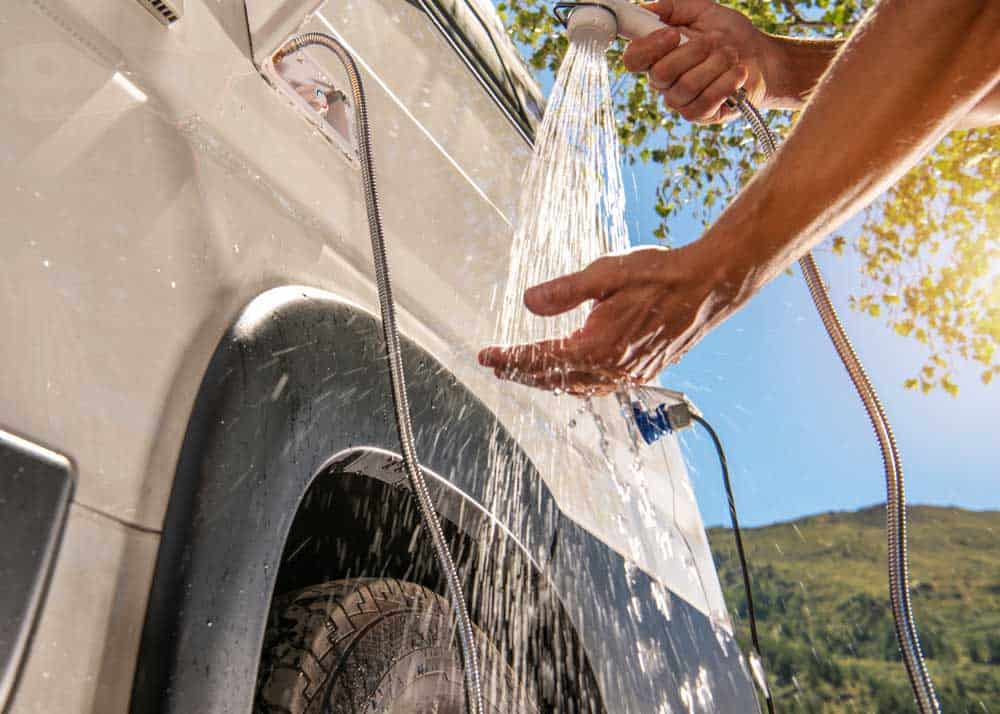
As with anything knowing how to specifically operate the recreational vehicle or campers’ water tank is important; misuse and careless errors can lead to costly mistakes as repair can be quite a fortune with water heaters.
So while you can leave it running, consider all the information below about what to expect if you do.
4 Things to Know About Running RV Water Heaters
1. Hot Water Tanks Can’t Run Empty
If your tank runs empty, while it’s still on, it will probably ruin it. The elements are made to be used in water and when it’s empty it can burn them out.
When you turn off your RV hot water tank, make sure to turn the heater and the water supply back on.
2. Turn Propane Hot Water Tanks Off Before Travel
Just like propane fridges, you should always turn off your propane hot water tank before traveling.
In some areas, it’s illegal to run propane appliances on the road. Especially in areas like tunnels and gas stations.
Make sure to know the rules and the risks.
3. Turn Electric RV Water Heaters Off Before Travel
There are two reasons for this, depending on your setup:
- Running your RV water heater on the battery can drain your power.
- If you shut your water off before traveling, you could end up in a situation with the tank on and the water off. This could burn out your elements.
4. Misconceptions
When one leaves the water heater running all day, it’s important to remember that they are not the same size as a residential water heater. This means that you cannot expect that just because you leave it running all day and have hot water ready to go, you can take long showers.
In fact, it isn’t uncommon for campers to run out of hot water mid-shampoo to let the water re-heat. The tank doesn’t have an endless supply of hot water.
But because of its small size, it will also heat up faster than a residential heater.
Of course, if you are using a tankless water heater (like this Gasland one on Amazon), you’ll have hot water as long as your propane lasts.
3 Energy Sources for RV Water Heaters
RV hot water heaters are generally heated by propane, electricity, and some even by engine heat exchange.
Keeping Your RV Heater On: 3 Pros and Cons
There are pros and cons to leaving your hot water tank on.
Generally, it’s fine to leave the water heater running in your camper but being aware of the consequences of the decision you make is most important.
1. Pro: Warm Water Ready To Go
Keeping your water heater on, means that you’ll have hot water when you want it. If turned off, the RV water heater needs time to heat up, making last-minute shower decisions not an option if you turn it off.
Just like you wouldn’t turn you water heater off at home because you would have to wait for the water to heat back up again, most people keep their water heater for the camper running because they function pretty much the same.
Having hot water ready to go is pretty sweet when you want to have a shower when camping.
2. Pro: Convenience
There is also the convenience factor of not having to remember to turn it on every time you do need to use it.
Having to check that everything is up to standard each time you fire it up can be a real pain, especially if different people are turning it on and off.
Not knowing and needing to check if the bypass is on once it is off, makes it more difficult than needs to be. Leaving it running during your trip requires a little less attention and thought.
Having to wonder if it’s on every time you want to use it can be a pain, especially if different people are turning it on and off.
3. Con: Energy Use / Financial
Depending on the size of your water heater and how it runs, you might use more energy than if you turn it on and off. And if you consume more energy, it will cost more money.
Some people don’t mind planning a little and leaving off until 30 minutes before it’s needed.
If your water heater is being heated by the engine (engine heat exchange), then that is different. You can actually heat water while traveling and then have a tank ready to go when you arrive at your destination.
But if you are burning propane or electricity – and seldom using your hot water – it might make sense to turn it off the rest of the time.
While not as big as a house heater, the operation costs can add up. This is especially true with propane heaters. Or if you heat electrically with power from a generator. These things can make people sometimes shut it off sometimes.
Using Your RV Water Heater
Operating a water heater in an RV is similar to how one would use their home water heater except with the condition that it’s much smaller, as mentioned above.
That being said, there are some things to remember in an effort to avoid costly mistakes with replacing it.
4 Water Heater Basics
- Most of the time, a recreational vehicle’s water heater is powered by propane with the exception of some that work from electricity, or the option to do either.
- Most sizes range from a six to a 10-gallon water heater. This is important to know because it solves the mindless issue of when you will run out.
- Refer to the manufactures direction and guide if there are any exceptions specifically to your water heater compared to others. But in general, before your first use, you will check the water heater’s bypass valve to make sure is open so water can pass.
- Let the water flow into the primary tank. Connect your RV to a nearby water outlet to allow the onboard pump to pump the water. The water will go through your lines and start making its way into your heating tank. You can stop once the water has reached the fill line of your freshwater tank.
Now your water heater is ready to be used for the first time.
Maintenance
Caring for your water heater is the most important thing to remember. While it’s not hard to keep it in good shape, it isn’t as easy to repair and replace.
In order to avoid paying more than necessary for maintenance, consider these tricks and tips below and the consequences of not doing them.
Annual Servicing
When your RV goes in for a maintenance check, have them make sure the water heater is running properly as well.
- They may recommend having an anode rod to take on the corrosion that a water heater naturally will bear over time.
- Small erosion unnoticed over time leads to large problems, and having a maintenance check helps prevent this.
Draining the Water/Cleaning
Draining the water from the tank and pump is important when cleaning the RV’s water tank.
- The build-up of sediment at the bottom can cause erosion and the possibility of frying if the water tank were to run low.
- Stagnant/dirty water isn’t ideal for cooking, showering, or any of the desired uses.
It’s good to check the quality of water when filling your tank. Here’s how to refill your freshwater tank while camping.
Winterization
Draining the water in prep for winter when not in use is critical.
If you don’t drain your tank for the winter, it’s likely that the water will freeze and crack the tank and connecting pipes.
Here’s more about how to add antifreeze to your RV camper. And how to winterize your RV with 16 step checklist.
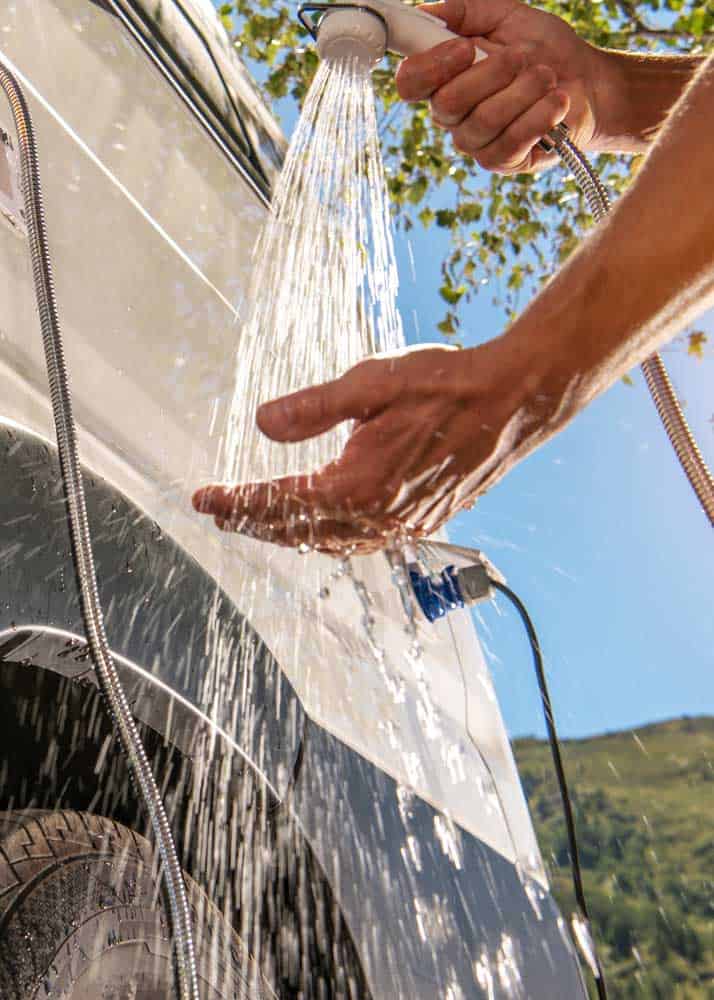
You’ll definitely want to turn off your heater when you sanitize your RV fresh water tank.
Final Thoughts
Most people leave their RV water heater running all day. It’s much more convenient and less work.
However, other people turn it off to save money on their camping trips. And to reduce their environmental impact. Some RVers feel it’s just good to give it a break.
But in the end, it is normal to keep your water heater running all day.
What do you do? Do you plan to keep your RV water heater running all day or only when you need it?

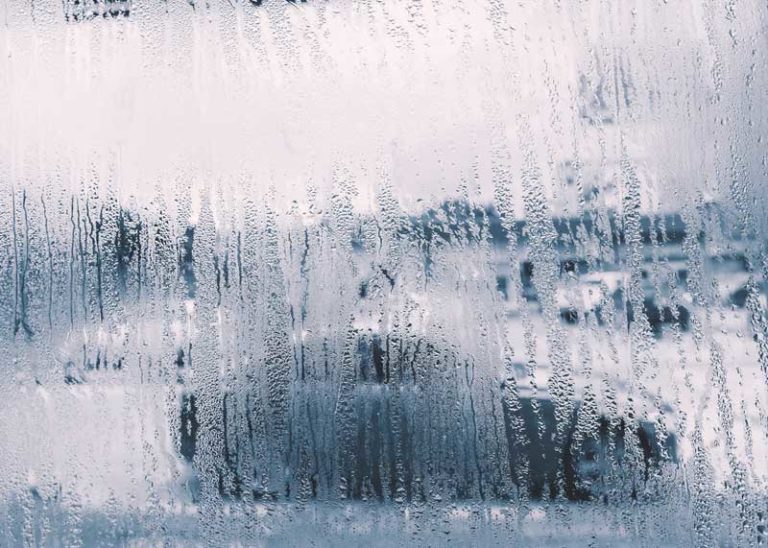
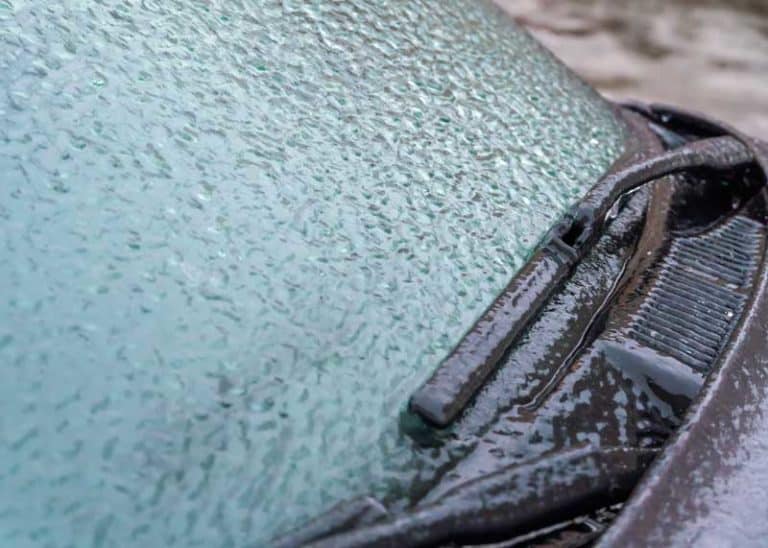

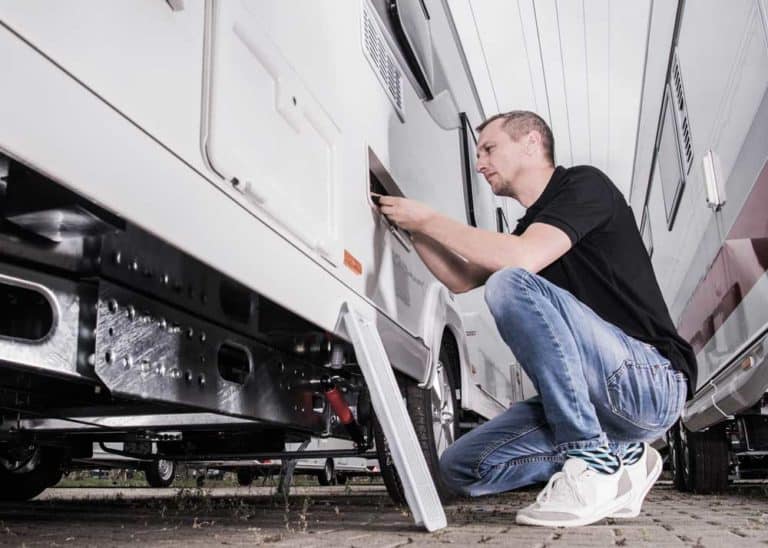
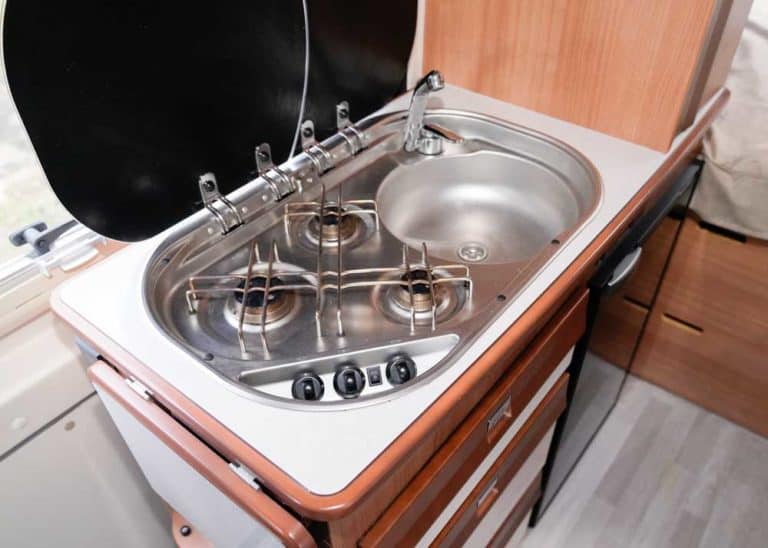
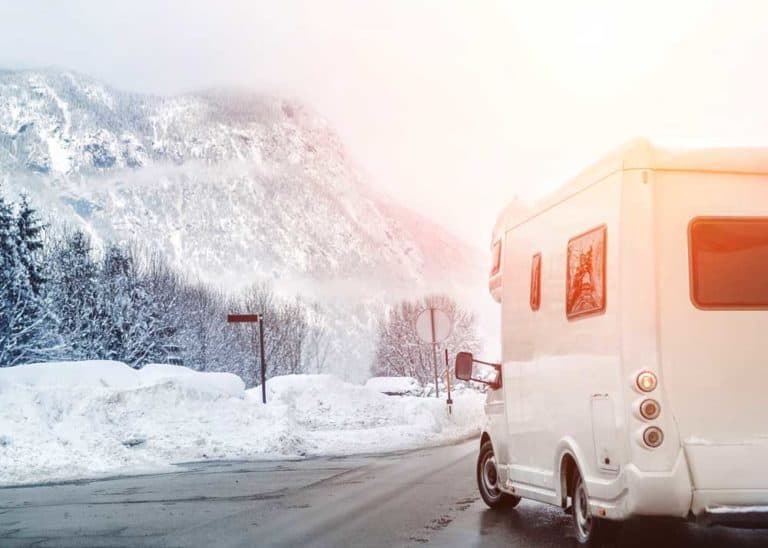
I leave. my water heater on all the time, especially during winter camping to prevent damage from freezing temperatures!